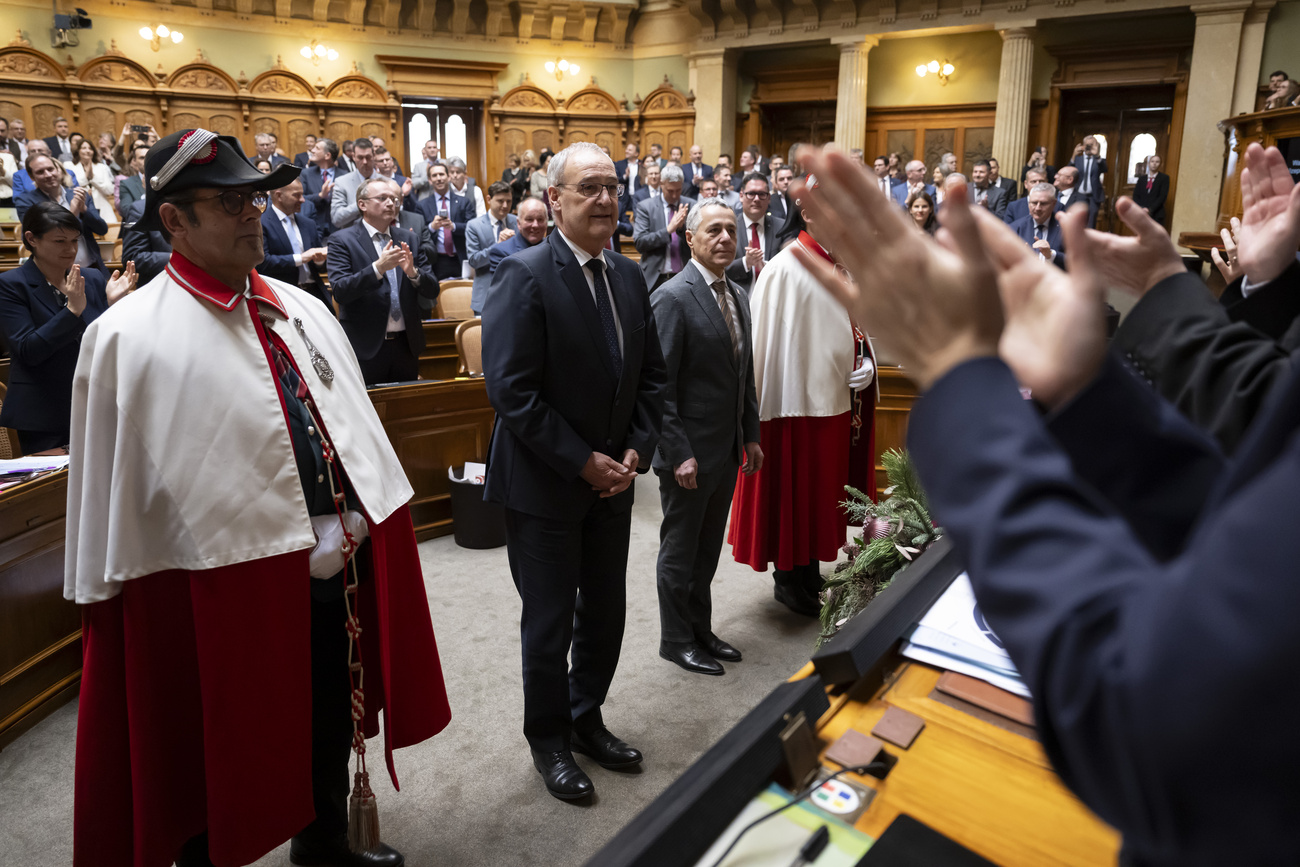
Switzerland calls ban of Memorial International a violation of freedom

The Alpine nation raised concerns about the dissolution of Russian human rights NGO Memorial International by the Supreme Court.
On Tuesday, Russia’s Supreme Court dissolved Memorial International for distorting history in its compilation of Soviet era atrocities.
“The dissolution is a violation of fundamental freedoms to which Russia has committed itself,” read a statement by the Swiss Federal Department of Foreign Affairs (FDFA) on Twitter on Wednesday.
The organisation, which has existed since 1989, was commended for its “invaluable independent historical and educational work about the Gulag and Soviet political repression”.
Switzerland’s Statement on recent developments in #RussiaExternal link pic.twitter.com/YmXofu8o6DExternal link
— Swiss MFA (@SwissMFA) December 29, 2021External link
On Wednesday, sister organisation Memorial Human Rights Centre was also dissolved by the Supreme Court for violating a controversial law which requires groups receiving funds from abroad to declare themselves as “foreign agents”. The group tracks human rights violations in contemporary Russia, including political prosecutions of Vladimir Putin’s opponents.
Shades of the past
The two dissolutions on Tuesday and Wednesday mark a new level in the all-out crackdown on voices critical of the Kremlin. The year 2021 was marked by the imprisonment of the Kremlin’s main opponent, Alexei Navalny, and the banning of his movement for “extremism”, but also the designation of numerous NGOs, independent media or individuals as “agents of foreigners”.
This classification, which is reminiscent of the “enemy of the people” classification in the Soviet era, forces the targeted individuals or entities to undergo tedious administrative procedures and to mention this status in each of their publications.
The deteriorating situation for Russian civil society was also touched upon by Switzerland.
“Switzerland calls on Russia to reverse the increasing restrictions on civil society,” said the FDFA statement.

In compliance with the JTI standards
More: SWI swissinfo.ch certified by the Journalism Trust Initiative































You can find an overview of ongoing debates with our journalists here . Please join us!
If you want to start a conversation about a topic raised in this article or want to report factual errors, email us at english@swissinfo.ch.